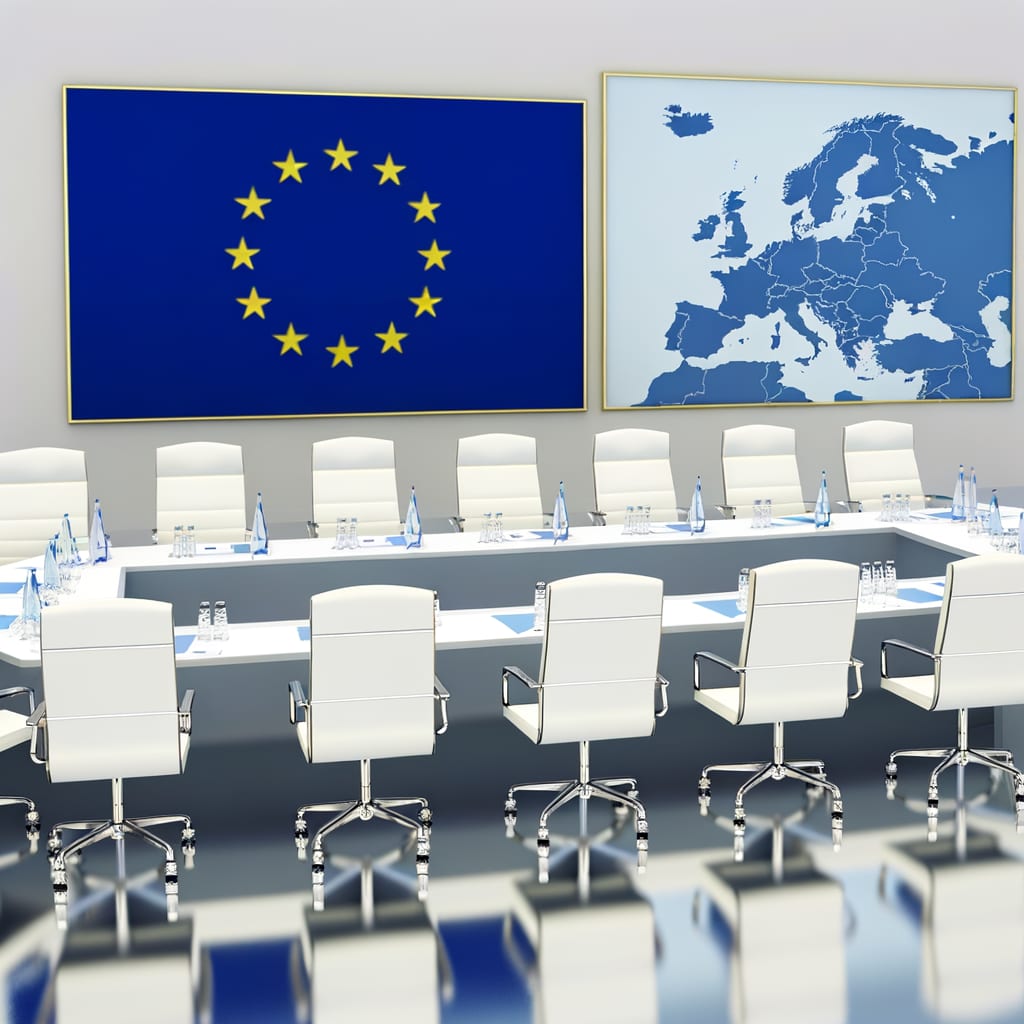Europe's Escalating Role in Ukraine Conflict: Calls for Peace Amid Intensified Tensions
As the war in Ukraine continues to strain relations between the EU, Ukraine, Russia, and the US, European leaders are struggling to develop a unified response. Despite the EU's financial investment in the conflict and calls for peace, there are increasing concerns that Europe could become directly involved in the war. Meanwhile, the German Chancellor Friedrich Merz and UK Prime Minister Keir Starmer call for peace plans, while the US toys with the idea of supplying Ukraine with Tomahawk cruise missiles.
Context: A Continent Divided
The conflict in Ukraine has intensified in recent years, drawing in various international actors and prompting a range of responses. The EU has already invested €180 billion into the war and is preparing a further €40 billion package, as noted by Hungarian PM Viktor Orban. Meanwhile, German historian and Peace Prize winner Karl Schlögel advocates for increased military support to defend Ukraine against Russia’s invasion.
Calls for Peace Amid Rising Tensions
Despite the escalating conflict, calls for peace persist. German Chancellor Friedrich Merz, following conversations with President Volodymyr Zelensky and other European leaders, emphasised that Ukraine needs a peace plan. Similarly, UK Prime Minister Keir Starmer proposed a peace plan for Ukraine modeled on U.S. President Donald Trump’s 20-point plan for Gaza, urging European leaders to work with the US to bring this plan to fruition.
Shifting Alliances and International Responses
The Ukraine conflict has also prompted shifts in international alliances and strategies. Trump's recent meetings with Zelensky and Putin have disappointed some European leaders, with German diplomat Christoph Heusgen expressing frustration at Putin's ability to sway Trump away from decisive action in support of Ukraine. Meanwhile, Trump has suggested supplying Ukraine with Tomahawk cruise missiles if Russia does not negotiate a ceasefire.
Energy Politics and Economic Impacts
The war in Ukraine also has significant implications for Europe’s energy policy. Former German chancellor Gerhard Schröder defended the construction of the Nord Stream 1 and 2 gas pipelines, citing Germany's need to resort to Russian gas as it exits nuclear energy. However, this stance is now viewed more critically in light of Russia's invasion of Ukraine in 2022. Further complications arise as Ukraine’s President Zelensky suggests his country may need to start importing electricity after one or two more attacks.
Potential for Direct Involvement
Hungarian PM Viktor Orban has warned that Europe is in great danger of becoming a direct participant in the Ukraine war, given the scale of its financial commitment to the conflict. Whether this warning will be heeded remains to be seen, as Europe grapples with the complexities of the ongoing war and its potential fallout.
As the situation develops, European leaders are under pressure to clearly define their stance on the conflict. The need for a unified and effective response is apparent, but achieving this amidst diverging narratives and national interests poses a significant challenge. Europe's ability to navigate this crisis with diplomacy and resolve will undoubtedly shape the region's geopolitical landscape in the years to come.

